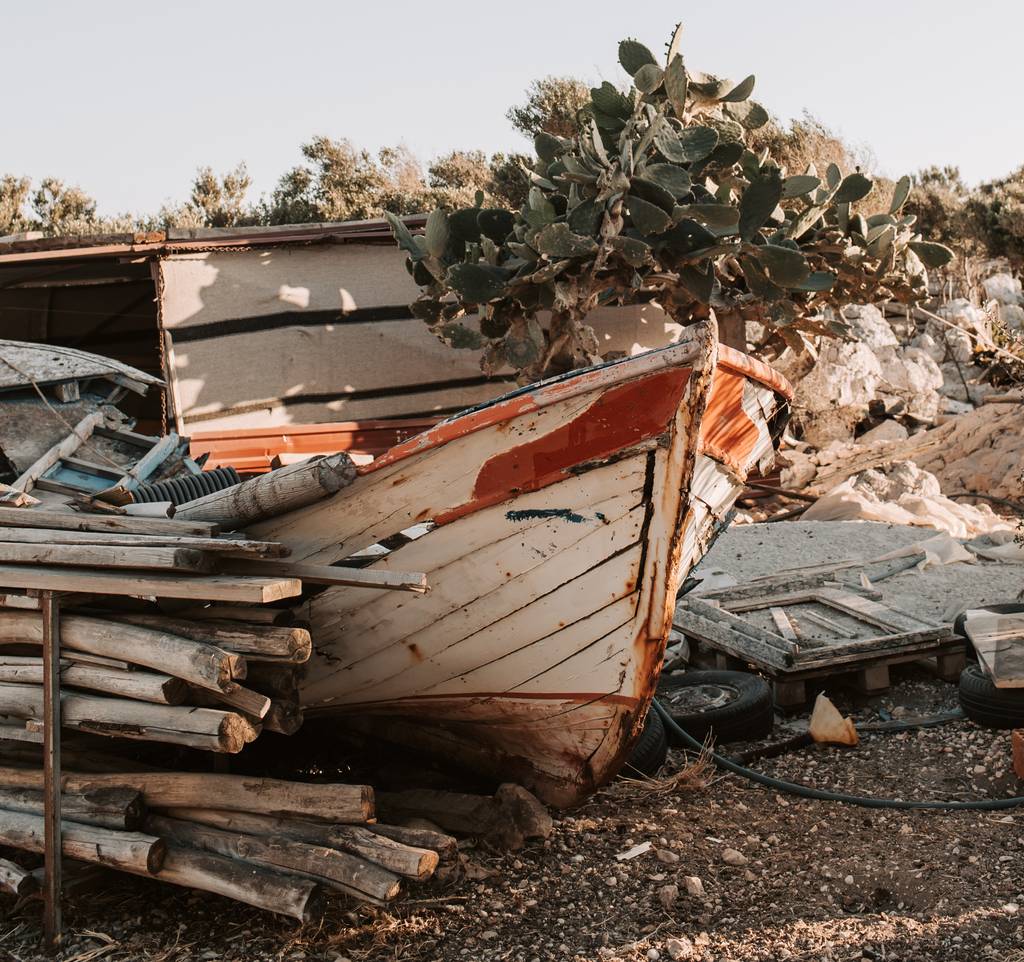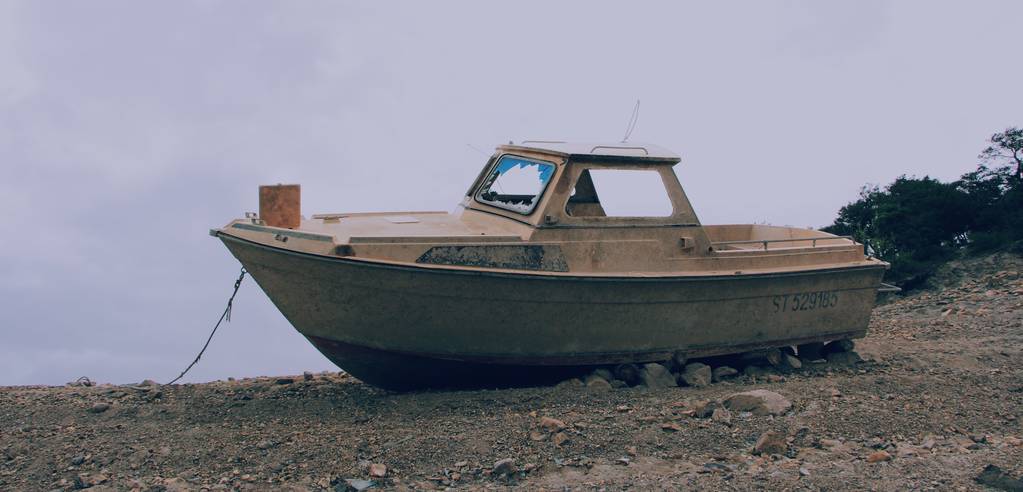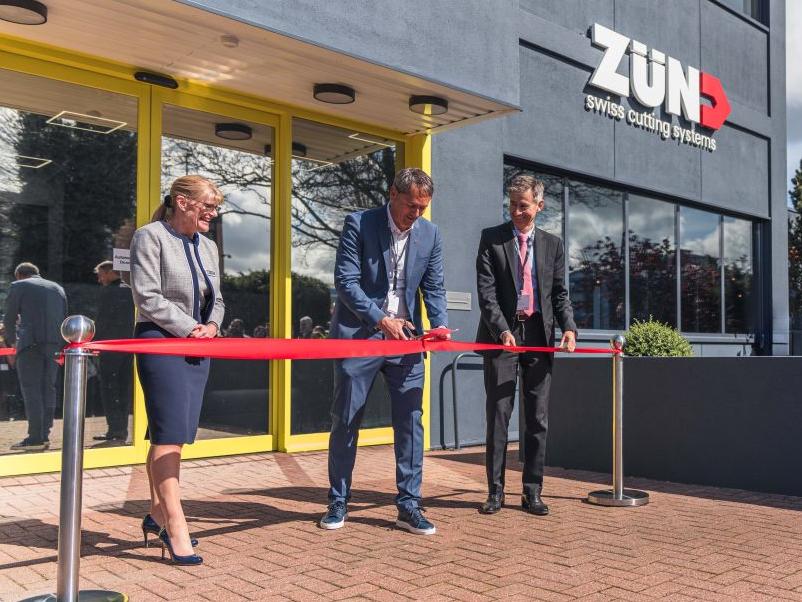The end-of-life boats challenge

Composites UK’s sustainability manager, Malcolm Forsyth looks at the end-of-life (EoL) boats challenge, including the projects that are underway, the options available, the challenges faced by the marine industry and the role of Composites UK and British Marine.
What is the EoL boats challenge? The use of glass-reinforced polymers (GRP) has transformed boat manufacture over the last 50 years, making boat ownership cheaper and creating a major global manufacturing industry. According to British Marine figures, today’s marine sector generates over £1.45 billion for the UK economy and employs 38,700 people across the UK in boat manufacture and marina services and UK marine craftsmanship and brands (such as Princess and Sunseeker) have a global reputation. So, there is much to celebrate about the UK marine sector and boatbuilding in particular, but there is also a new challenge that must be successfully addressed if these successes are to continue - the responsible management of EoL GRP boats.

One great advantage GRP use in boats brings is its durability enabling GRP boats to remain fully functional for decades with only modest repairs and maintenance required. However, all GRP boats eventually reach the point where the cost of keeping them seaworthy exceeds their value.
Many of the boats made in the 60s/70s are now reaching this EoL point, meaning an increasing number of boats needing responsible disposal, and herein lies the problem because there is not yet a well-established national boat recycling infrastructure. Consequently, boats are simply abandoned in marinas or on beaches passing the disposal problem to others, or worse, leaving the boats for nature to break up and then disperse fragments of GRP and other materials. And this problem will only grow as increasing numbers of boats made decades ago reach this EoL point.
The wind industry has recognised a similar challenge with turbine blades reaching an EoL point and are now actively engaged in developing solutions through funded research and industrial collaborations - and the marine industry now needs to do likewise. This growing EoL challenge is one which could greatly damage the image of the marine industry in the eyes of Millennials and Gen Zs who will be a key future boat owner target market. So, now is the time for the marine industry to take action.
The current difficulties
All GRP boats contain a variety of materials and this presents immediate issues to be overcome – each boat needs to be carefully disassembled enabling the safe removal of hazardous materials (to humans or the environment) and the effective separation of different materials used (wood, steel, GRP, copper wiring etc), maximising their attractiveness for recycling. Well-established recycling infrastructures and markets already exist for wood, metals and copper wiring, generating sales income for the recycler but the GRP stream – the largest by volume and weight – is more problematic because there is not yet an established UK GRP recycling infrastructure. Therefore, responsible disposal of this material (via landfill or incineration) is currently a cost for the recycler.
Another significant difficulty to be overcome before a national boat recycling infrastructure can be established, is the question of ownership and who pays for boat recycling. Currently there is no national UK boat ownership scheme and therefore no clear accountability for safe EoL disposal on boat owners. Consequently, EoL boats are increasingly abandoned and the responsibility and cost for safe disposal falls to marina owners or civic bodies responsible for keeping beaches and harbours clean, often after an expensive and time-consuming legal process to confirm ownership.

This issue is further complicated by boats typically having multiple owners over their lifetime, the demise of many original boat manufacturers and the global nature of the marine market, meaning boats often spend and end their lives in a different global region to their place of manufacture. Finding a fair and workable regime for generating the required funds to cover EoL disposal is therefore challenging and may require agreements between country marine associations and governments. However, for an economically-viable boat recycling infrastructure, there must be a gate fee paid to accept a boat for recycling, to complement the sales value obtained for the individual material streams and so enable overall profitability. Reliable operation for such a fee system will either require clearly-identified individual ownership (as is the case with EoL road vehicles) or some form of levy on new boats which is then distributed to the boat dismantlers/recyclers per abandoned boat processed.
A third current difficulty is the lack of established markets for recycled fibres and resins, or products made from GRP waste (such as pressed panels for construction applications) but this barrier is now being addressed as more GRP waste from other sectors is repurposed or recycled and should quickly diminish over the next 2-3 years.
The most critical difficulties to address therefore are the current lack of UK dismantling facilities and GRP recycling infrastructure, and of clear ownership (via boat registration) for EoL boats enabling vital gate fee income generation. With both issues however, there are promising developments underway which can become medium-term solutions.
The potential solutions
There are now several GRP recycling processes under development via academic and industrial consortia, with some now ready for commercialisation (such as pressing GRP waste into construction panels or co-processing GRP waste in cement kilns, processes already operating commercially in Europe) or at critical scale-up stages having been proven at laboratory scale, and we can confidently expect UK commercialisation of these process options within 3-5 years. Composites UK sees this as a key challenge for the whole composites industry and is investing significant effort to accelerate these process commercialisations.

With boat registration and raising funds for EoL boat recycling, other European countries are exploring options for doing this. In France, all new boats now have an additional tax charged, linked to boat size and ranging from hundreds to low thousand Euros, specifically to fund a nationwide network of boat recycling centres. Other countries are investigating other funding options for EoL boat recycling including registration schemes to establish clear accountability. The UK marine industry, led by British Marine and the Royal Yacht Association, must now decide which option is most suitable for the UK market, giving clear accountability for safe disposal and raising the necessary funds for economic operation of a national boat disposal network.
What now needs to be done?
Critical next steps now are for the UK marine sector to support Composites UK and other players, in developing GRP recycling process capability and infrastructure, and to confirm the right mechanism for generating the funds needed for economic operation of boat recovery networks. If these two critical steps are successfully achieved, the UK marine industry can continue to prosper sustainably and boating can remain an attractive leisure activity for future generations.









